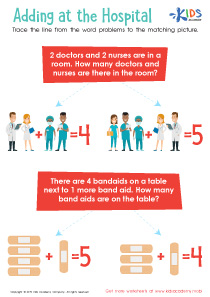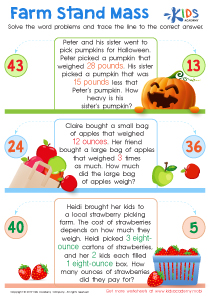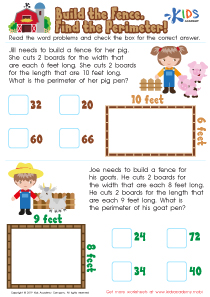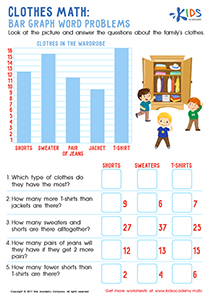Normal Two-step Word Problems Worksheets for Ages 4-6
13 filtered results
-
From - To
Introduce your young learners to the fascinating world of math with our Normal Two-step Word Problems worksheets! Specifically designed for children aged 4-6 years, these learning online printables offer a gentle introduction to multi-step problem-solving. Each worksheet is crafted to encourage logical thinking and enhance numerical skills, ensuring your child grasps the fundamentals of mathematics in a fun and engaging way. Perfect for home use or classroom settings, these printables are an excellent resource for developing critical thinking from a tender age. Dive into our Normal Two-step Word Problems today and watch your child's confidence in math grow!


Tricky Problems Worksheet: Part 1


Enrichment -2 Step Word Problems Worksheet


Adding Flower Petals Worksheet
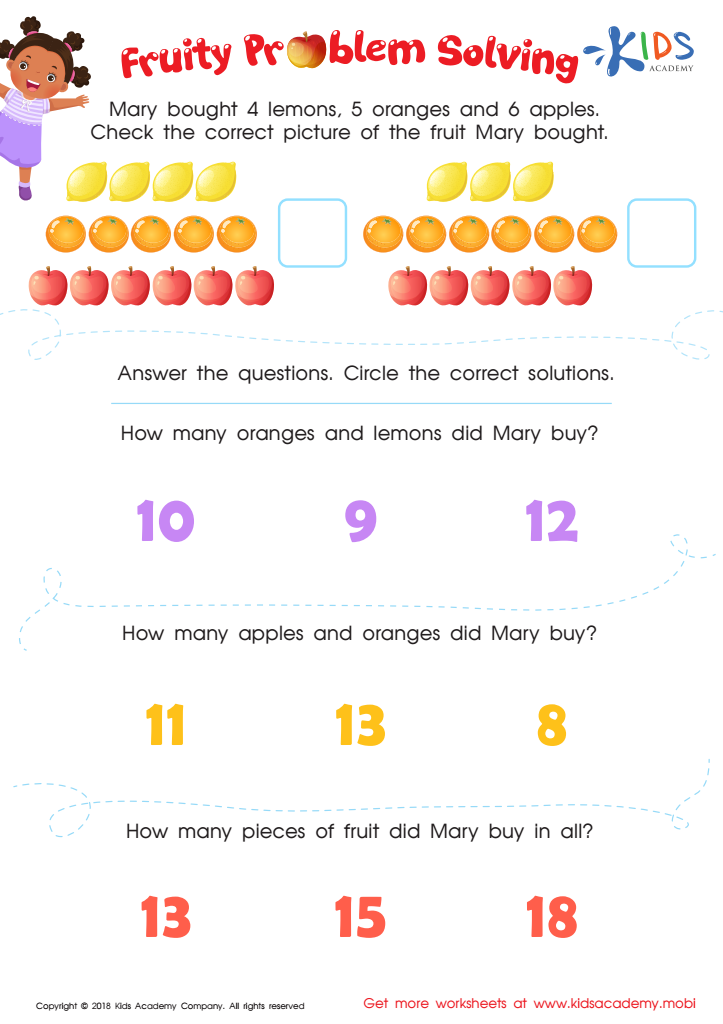

Fruity Problem Solving Worksheet


Visiting a Volcano Word Problems Worksheet
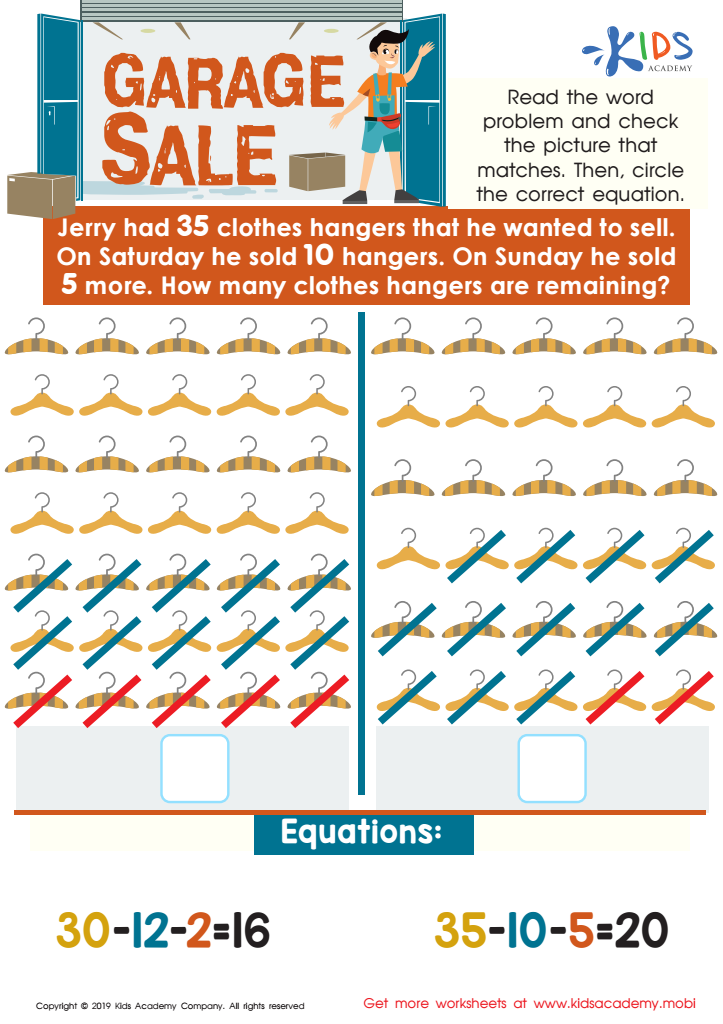

Garage Sale Worksheet


Tricky Problems Worksheet: Part 2
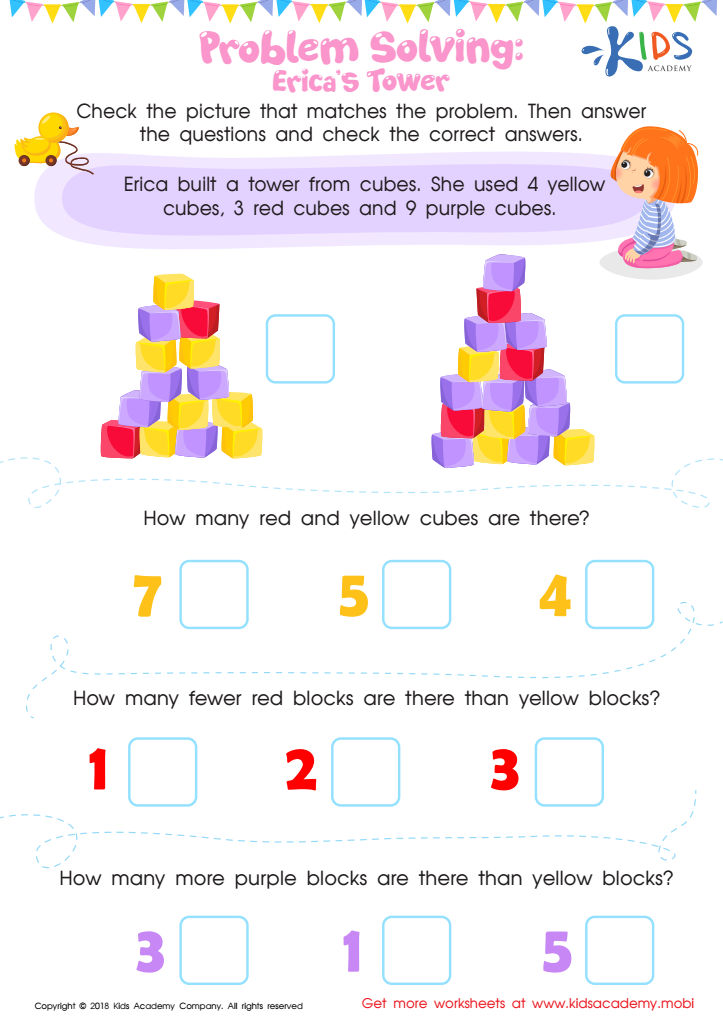

Problem Solving: Erica's Tower Worksheet
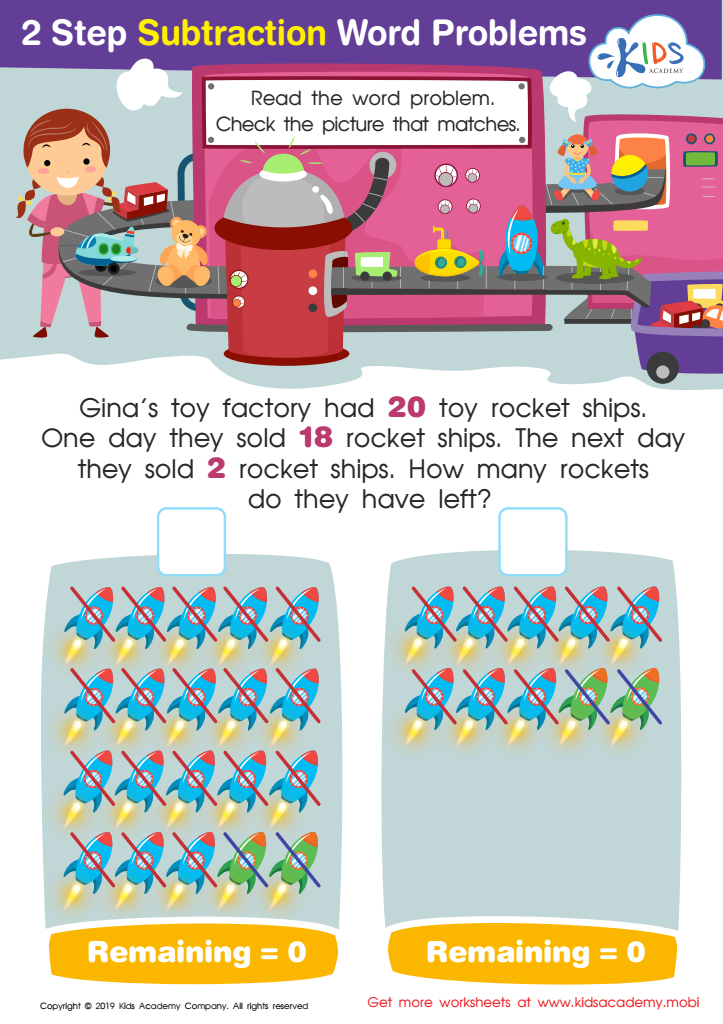

Step Subtraction Word Problems Worksheet


Solve the Problem: Trick–or–treating Worksheet


Addition and Subtraction: Word Problems Worksheet
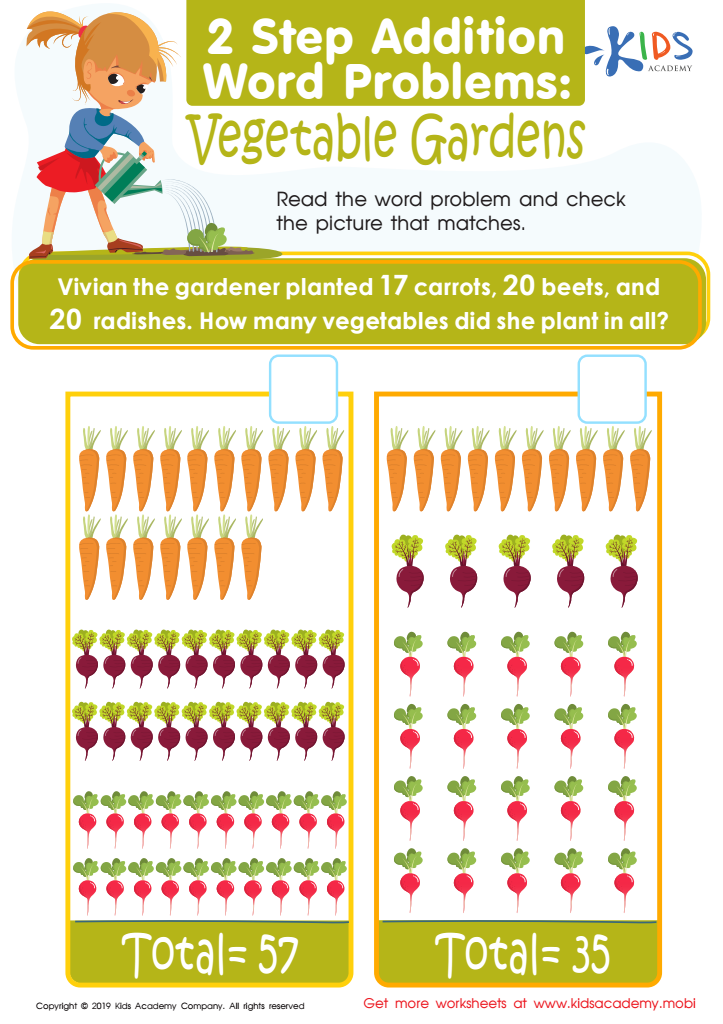

Vegetable Gardens Worksheet
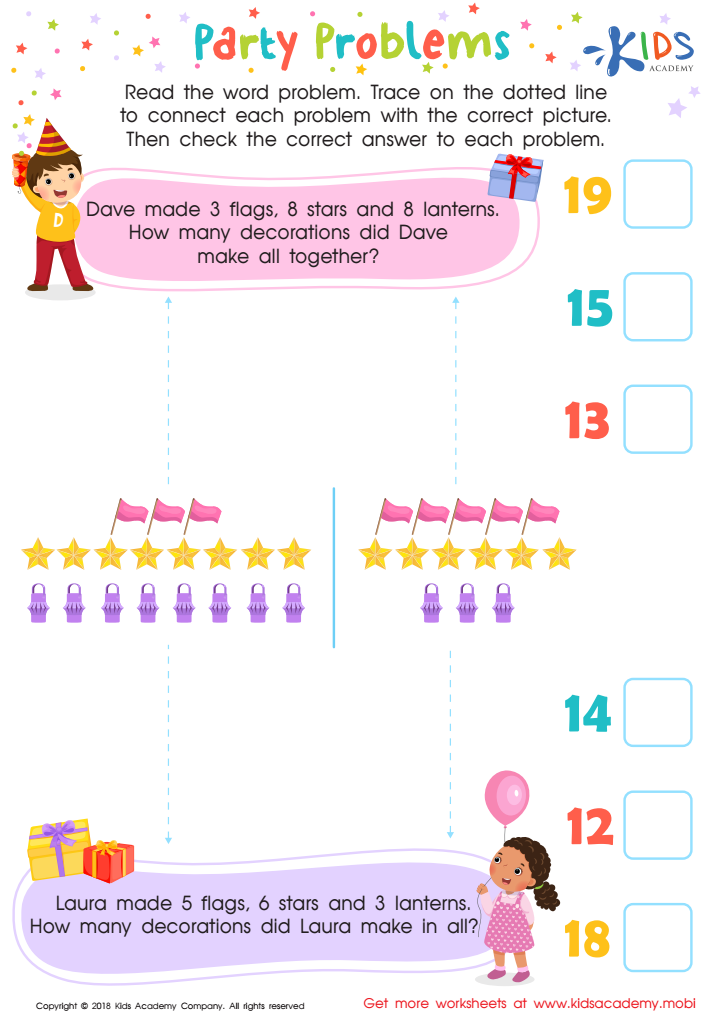

Party Problems Worksheet
The Benefits of Learning Interactive Worksheets on Two-Step Word Problems for Children Aged 4-6 Years
In the foundational years of childhood development, especially for children aged 4-6, engaging and effective educational tools are crucial for fostering cognitive growth and problem-solving skills. Learning interactive worksheets, particularly those focused on two-step word problems, play a pivotal role in this developmental phase. Here’s why these worksheets are so beneficial and how they cater to the needs of young learners.
Building Sequential Thinking Skills
Two-step word problems require children to follow a sequence of operations to arrive at a solution. This is not just about math; it's about learning to think in steps and solve problems methodically. For children in the 4-6 age bracket, learning interactive worksheets serve as an excellent introduction to this mode of thinking. Each problem on the worksheet encourages a child to identify not just the numbers involved, but also the processes needed to solve the problem. This enhances their ability to think logically and sequentially, skills that are applicable across all areas of learning.
Enhancing Reading and Comprehension
Word problems do not simply test a child’s ability to calculate but also challenge their reading and comprehension skills. The interactive element of these worksheets ensures that children are not passively reading but actively engaging with the text. They learn to pick out important information, understand the context, and relate textual elements to mathematical equations. This dual focus on language and mathematics enriches their learning experience, making it more holistic.
Encouraging Interactive Learning
The interactive aspect of these worksheets is particularly suited to young children who are naturally curious and tactile learners. Interactive features might include clickable areas, drag-and-drop components, and audio explanations, which make the learning process more engaging. Such features cater to various learning styles—whether auditory, visual, or kinesthetic—ensuring that every child has the chance to grasp the concepts effectively.
Promoting Independent Learning and Confidence
As children navigate through two-step word problems on interactive worksheets, they learn to trust their judgment and develop decision-making skills. This independence in learning fosters self-confidence. When a child successfully solves a problem through their own reasoning, it reinforces their belief in their abilities and encourages a positive attitude towards challenging tasks.
Immediate Feedback and Adaptability
One of the significant advantages of learning interactive worksheets is the instant feedback they can provide. This immediate response allows children to understand what they’ve done right and where they might have made mistakes, without significant delays between learning and correction. This feature is particularly critical for maintaining the attention span and interest of young children, who can become easily discouraged by delays or lack of understanding. Immediate feedback helps keep them engaged and motivated to improve.
Moreover, interactive worksheets are highly adaptable. They can adjust the level of difficulty based on the child's responses, ensuring that the learning experience is neither too easy nor too discouragingly hard. This adaptability aids in providing a customized learning experience that is tailored to the individual needs of each child, promoting optimal learning outcomes.
Facilitating Parental Involvement
Learning interactive worksheets on two-step word problems also offer an excellent opportunity for parents to be involved in their children’s education. These tools are designed to be intuitive, allowing parents, regardless of their own math skills, to guide their children through the problems. This involvement not only enhances the child's learning experience but also strengthens the bond between parent and child, creating a supportive learning environment at home.
Preparing for Future Educational Challenges
Early exposure to structured problem-solving, as provided by two-step word problems, prepares children for the academic challenges they will face in school. Concepts introduced in these worksheets, such as basic arithmetic operations, logical sequencing, and problem-solving, are foundational to more advanced mathematics. Children who master these skills early are often more confident and capable when faced with more complex mathematical concepts in the future.
Conclusion
In conclusion, learning interactive worksheets on two-step word problems are highly beneficial for children aged 4-6. They not only build essential mathematical and literacy skills but also develop cognitive abilities like sequential thinking and problem-solving. These worksheets make learning engaging and adaptive, offer immediate feedback, and facilitate parental involvement, all of which contribute to a well-rounded educational experience. This early investment in children’s educational tools can lead to lifelong benefits, making them well-equipped to tackle future academic challenges with confidence and skill.
 Assign to My Students
Assign to My Students





